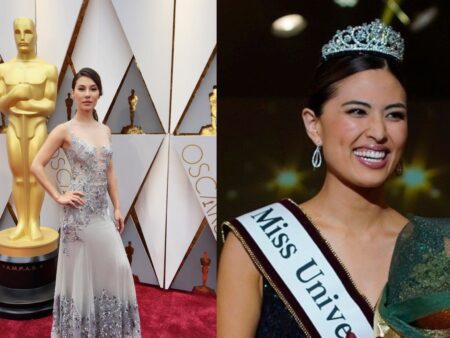
Infertility is a rabbit hole. It is full of different diagnoses, answers that turn into more questions, and so much more that seems to pull you down into a deep place of unknowns.
No matter how many answers I have received, they don’t change the fact that I am infertile. I was diagnosed with primary infertility originally, and then secondary infertility. I belong in the infertility community. I point this out because for a long time, I felt like I did not fit in anywhere. I felt I did not deserve to complain or feel upset about my situation and I did not know where to turn for support.
For a little background: My husband and I were high school sweethearts, and we have been together for more than 15 years. In 2012 we got married and in 2015 we started trying to have children. We had no idea what was ahead of us. By 2016, we found out that IVF was our only option for children, and we were incredibly blessed to have our first son in 2017 after a successful first round of IVF.
At the time, we knew we were lucky, but we had no idea just how lucky we had been. After having our son, I naively assumed that because IVF had worked for us the first time, it would work again. I was wrong.
I thought I had already been diagnosed with any infertility issues I had, but I was blindsided to find out that I had more issues than I was originally aware of. Between 2017 to 2019, I was diagnosed with Hashimoto’s Disease (which is an autoimmune thyroid disorder), PCOS, Asherman’s syndrome (scarred uterus), recurrent pregnancy loss, thin uterine lining, anovulation, and more. This was on top of the fact that I already knew my fallopian tubes were blocked. Combining all of these issues makes it virtually impossible for a pregnancy to occur, and even more difficult for a pregnancy to be sustained.
Over the last three years, we have gone to three different fertility doctors and through six cycles of IVF. During these cycles, we had two cancelled due to my lining issues, two failed transfers, and two miscarriages.
In the spring of 2019, after a failed transfer, our doctor sat down with us to discuss next steps. We thought we would go into another cycle and hoped that he had figured out how to finally make our dreams come true again.
After having our son, I naively assumed that because IVF had worked for us the first time, it would work again. I was wrong.
Instead, he told us that surrogacy would likely be our best option for a healthy baby. We were shocked. We knew this might be a possibility one day, but we did not think it would ever get to that point. He said we could try once more with my body, but I had to be on a medication for six months prior to trying, and if the cycle did not work, he absolutely recommended surrogacy after that.
That final cycle did not work. Well, it did, for a few weeks, and then we had another miscarriage. We had never felt so low.
I had assumed that I would eventually carry another child to full term and have a second child myself. I had thought my husband and I would have the choice of how many children we wanted. Clearly, that was not how things would work out.
Shortly after our doctor recommended surrogacy, I remember going the gym, and found myself crying hysterically in public, realizing that I might never carry another child myself. I simultaneously felt numb and too many feelings all at once.
I remember talking to a friend last year about the possibility of surrogacy and trying to express how difficult a decision it was. Instead of understanding that this was a big deal for us, she simply said: “Well, wouldn’t it just be easier to go straight to surrogacy now? Why would you keep putting yourself through more cycles?”
To me, that dismissed everything we had been through, and made surrogacy seem like an easy way out. (Anyone who has been through it knows it’s not the easy option!). It’s a completely new path on its own, not to mention the gigantic costs and emotional decisions.
In the midst of this extremely difficult process for the past three years, I have struggled to figure out where I belong in the infertility community. I have a child, and I gave birth to that child myself, so although we struggled with primary infertility before having him, we still have him.
At times, I felt like our family and friends did not think it was as serious as it was. Throughout the last three years, every time we would experience a hardship, a loss, or a setback, the most popular response from friends and family was: “Don’t worry; it will definitely happen! You’ve been pregnant before and you had your son, so it has to happen again!” Even doctors said this.
I understand that it was difficult to imagine that it might not happen for us again — we were also having a hard time with this thought – but hearing this response from friends and family over and over again became exhausting. I asked them to stop saying it, and reminded them that it might not happen, but they ignored me and continued to say these phrases. They probably believed they were being supportive, but I felt that they were once again dismissing everything we had experienced.
During this experience, I also didn’t feel like I belonged in the infertility community. In fact, I was told I did not – by both people in primary infertility groups and people experiencing secondary infertility.
As I suffered with loss after loss, I tried to join some infertility support groups, but I was told over and over again that I was not allowed at the group events because they did not want to make the people without children uncomfortable. I understood that – but what about me? What about my pain? Where did I fit in? I felt rejected at a time that I was already incredibly low, and that felt wrong. I was also told I did not fit into the world of secondary infertility because I already knew I had to use IVF to try for a second.
At the same time, I understand where people were coming from. Primary infertility is a unique pain on its own and I do not dismiss that. I know the pain that comes from wondering if you will ever be a parent at all — I have been there — and it is so difficult.
I also know that for many diagnosed with secondary infertility, they had their first child naturally, and they are blindsided by an infertility diagnosis when they try to have another child. I am sure this is extremely difficult, but I don’t necessarily think that the definitions of each have to be so narrow. In fact, I don’t think people should focus on how to define what stage of infertility a person is in. People deserve support regardless of what stage of infertility they are in.
I turned to social media and the infertility community there, and I finally felt accepted. I found people, regardless of where they were on their journey, who accepted me, listened to me, and made me feel justified in my pain. I no longer felt so alone. For so long, I was not sure where I belonged, and I was not sure if I should back out of the world of infertility. But I needed it more than ever. I am so glad I did not give up seeking support. Infertility is hard no matter what stage you are in!
I remember talking to a friend last year about the possibility of surrogacy and trying to express how difficult a decision it was. Instead of understanding that this was a big deal for us, she simply said: ‘Well, wouldn’t it just be easier to go straight to surrogacy now? Why would you keep putting yourself through more cycles?’
I came to realize that I do not have to define my infertility in terms of primary, secondary, or anything else. I’m infertile. That’s enough. I will always deserve support. I will always deserve understanding. I will always belong.
My husband and I ultimately came to terms with surrogacy and are thrilled we did because we are about to complete our family. We are extremely grateful that our path with surrogacy was the right choice for us, and we are finally having our second child in December!
A lot of times we can question whether or not people care about what we are saying, but I am here to say that people care. I care. You have a right to talk about your story, you have a right to connect, to find a community, to find support, to find love, to find whatever you need. Healing is not linear, and neither is a journey through infertility. You, and your pain, your story, your experiences, will always matter.
Contributor
Alex Kornswiet
Alex Kornswiet is the founder of the blog and community, Our Beautiful Surprise, @ourbeautifulsurprise. She aims to bring support, community, and advocacy to those experiencing infertility and miscarriage, and to help those who want to offer support. Alex and her husband have one son, via IVF, and a second son due soon via surrogacy. They are extremely grateful!

Listen to stories, share your own, and get feedback from the community.


















